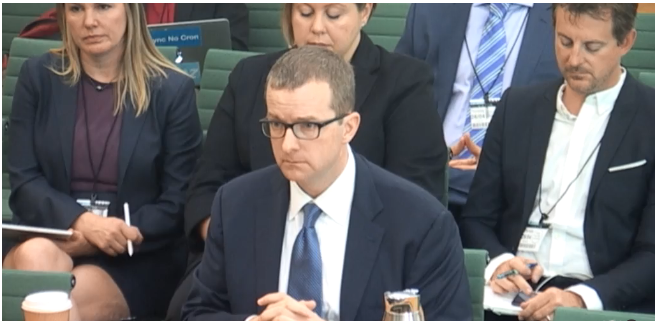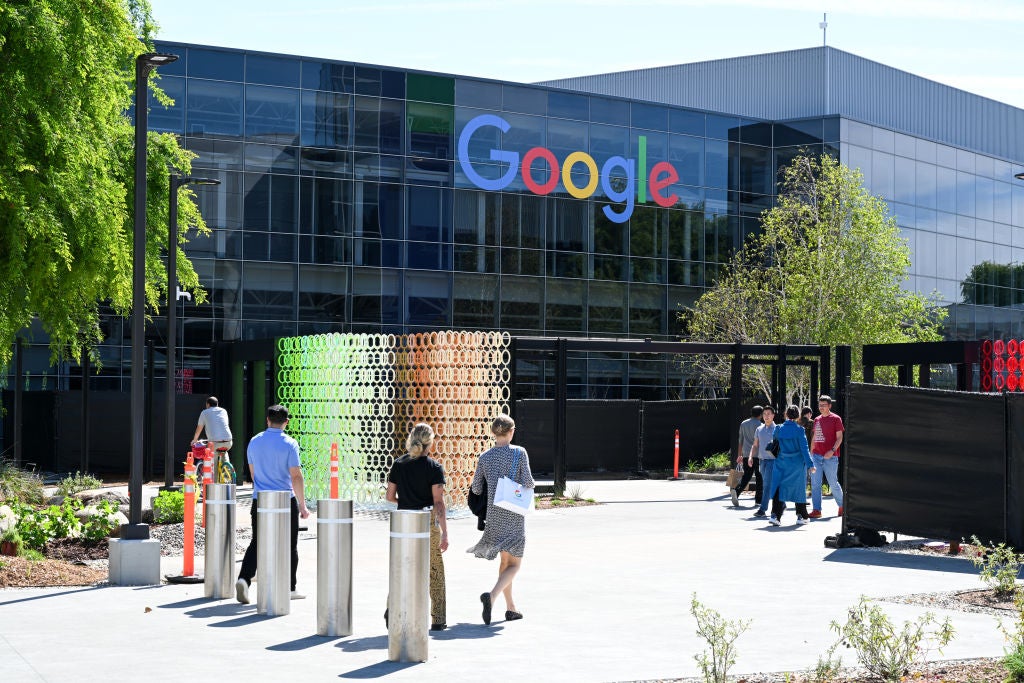
Facebook is rolling out new measures to make political ads more transparent for UK users, according to the company’s chief technology officer Mike Schroepfer.
Schroepfer, who was today interrogated by a committee of UK lawmakers as part of its inquiry into fake news, also said Facebook will enforce a new vetting process of political ads in time for elections in England and Northern Ireland next month.
Facebook users in the UK will be able to click on a View Ads button to see all the political ad campaigns running on Facebook, Messenger and Instagram, Schroepfer told the digital, culture, media and sport select committee.
The ads will be publicly available in an archive for seven years, which will detail how many people they have reached, and how much was spent on the campaign.
Schroepfer said:
We’re actually going to mark all political ads prior to the 2019 local elections, and explain who paid for them, and provide a lot more transparency. It’s an important issue.
How well do you really know your competitors?
Access the most comprehensive Company Profiles on the market, powered by GlobalData. Save hours of research. Gain competitive edge.
 Company Profile – free sample
Company Profile – free sampleThank you!
Your download email will arrive shortly
Not ready to buy yet? Download a free sample
We are confident about the unique quality of our Company Profiles. However, we want you to make the most beneficial decision for your business, so we offer a free sample that you can download by submitting the below form
By GlobalDataWe’re going to provide a searchable archive of all of those ads, and show who paid for them.
The function was first rolled out in Canada last October and in the US last summer.
During his testimony Schroepfer stressed the importance of the platform’s UK market.
There are 40 million monthly active users on Facebook in the UK and more than 2 million active small business Pages as well as 29 million Groups. By the end of this year we will have a total of 2,300 people working for Facebook in the UK.
Facebook chief Mark Zuckerberg sent Schroepfer to testify is in his place at today’s hearing, to the intense displeasure of law makers.
Schroepfer has been with Facebook since 2008 and CTO since 2013.
Facebook users can’t block political advertising
During his grilling by committee chair Damian Collins Schroepfer explained that users would not be able to opt out of receiving political ads altogether.
They would only be able to block particular advertisers and adjust their ad preference settings.
Schroepfer said:
I want to be clear, there isn’t an opt-out of political advertising.
Facebook tracking
When questioned on how Facebook can track and collect your data from other websites, Schroepfer confirmed that when users visit pages with a Facebook like button, Facebook can see that.
But when asked how many websites have Facebook tracking information, Schroepfer says he doesn’t know, a common theme throughout the discussion.
Fake accounts
If someone — often a woman that you don’t know, and has no connection to you — tries to add you on Facebook, it is probably a financial scam, said Schroepfer.
Labour MP Chris Matheson asked how often people set up fake Facebook accounts, and why they do it.
Schroepfer said:
“The ultimate goal for most of these is some sort of financial gain.
The people owning these accounts can then message friends claiming they are stuck somewhere and need money.
He said:
The biggest volume we see is straight up financial scams. People who are trying to find people, build trust and then use that trust to scam them for money.
Most are financially motivated, so not likely to be from Russia, he explained, adding that the network has teams whose job it is purge fake accounts.
Finding and removing these accounts is one of the most important things we can do.
We find the vast majority of the at sign up time, many million a day. But many of them do get through because they’re building of people trying to build plausible personalities, and they do they tricky things to mimic and cloak the original user.
He estimated that a “few percent” of Facebook accounts are fakes.
Cambridge Analytica
On the topic of Cambridge Analytica and Facebook’s role in connecting the firm to millions of Facebook users’ information, Schroepfer said in his written evidence that in the company’s internal investigations it did not find any ads related to the 2016 Brexit referendum.
Neither did it find any pages on Facebook directly managed by Cambridge Analytica or its parent company SCL Group.
They did find that Canadian data firm AggregateIQ had “certain billing and administration connections” with Cambridge Analytica, despite the two firms denying any involvement with each other.
Schropfer also revealed that AIQ spent approximately $2 million on Brexit referendum ads.
Schroepfer said:
We have provided details on the specific campaigns and related spending to the ICO and Electoral Commission.
In the course of our ongoing review, we also found certain billing and administration connections between SCL/Cambridge Analytica and AIQ.
Data collected through a Facebook app, disguised as a personality quiz, was also not used by AIQ in their ad campaigns targeting Brexit voters, he said.
When an advertiser runs an ad campaign on Facebook one way they can target their ads is to use a list of email addresses (such as customers who signed up to their mailing list).
AIQ used this method for many of their advertising campaigns during the referendum.
The data gathered through the TIYDL app did not include the email addresses of app installers or their friends.
This means that AIQ could not have obtained these email addresses from the data TIYDL gathered from Facebook.
AIQ must have obtained these email addresses for British voters targeted in these campaigns from a different source.
Cambridge Analytica’s ex-boss Alexander Nix refused to appear before the committee earlier this month.
On Tuesday, Aleksandr Kogan, the data scientist behind the app that harvested information from 87 million Facebook accounts, gave evidence before the committee.
You can read a roundup of Kogan’s testimony can be read here.







